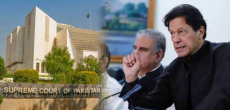[vc_row][vc_column][vc_column_text dp_text_size=”size-4″]
In a recent electoral event characterized by a stringent crackdown on the opposition and a significantly low voter turnout, Bangladesh’s Prime Minister, Sheikh Hasina Wajed, has secured her fifth term, solidifying her prolonged rule in the nation’s political arena.
Bengali media reports indicate that Hasina clinched victory by securing 216 out of 299 seats. Independent candidates secured 52 seats, while the Jatiya Party managed to secure 11 seats. This controversial election, marked by approximately 40% voter turnout, was marred by incidents of violence, including troubling arson attacks.
As the global community observed these contentious elections, the Bangladesh Nationalist Party (BNP), the primary opposition party, promptly rejected the results. The BNP accused Hasina of establishing a totalitarian state and suppressing dissent, adding a layer of complexity to the already strained political environment.
The rivalry between Hasina’s party and the BNP, spearheaded by former premier Khaleda Zia, has recently intensified, contributing to the polarization within the country’s political landscape. This escalating tension raises concerns about the stability and inclusivity of the democratic process in Bangladesh.
Read more:Shakib Al Hasan Secures Parliamentary Seat in Bangladesh General Election
Amidst worries about the credibility of the recent elections due to the absence of significant challengers, additional concerns have been raised regarding the imprisonment of at least 20,000 BNP members. Critics argue that these arrests may be politically motivated, casting doubt on the fairness of the electoral process. However, the government vehemently maintains that these actions are not politically driven, further deepening the divide between the ruling party and the opposition.
Despite the widespread rejection of the vote by both the public and political rivals, Sheikh Hasina remains resolute in her commitment to democracy and development. The 76-year-old leader, who has been the decisive victor since her return to power in 2009, has weathered two subsequent controversial polls and faced allegations of electoral rigging.
As Bangladesh grapples with the aftermath of these contentious elections, the nation finds itself at a critical juncture, navigating the delicate balance between political stability, democratic values, and the need for inclusive governance. The outcome of this latest electoral episode will undoubtedly leave a lasting impact on the nation’s political landscape, shaping its trajectory in the years to come.
[/vc_column_text][/vc_column][/vc_row]











